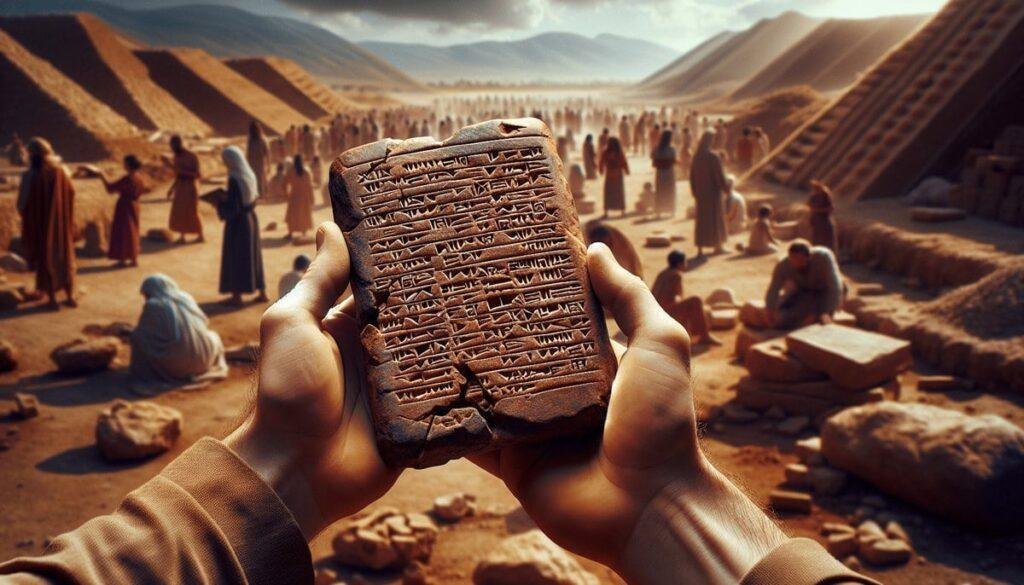Amidst the archaeological community, the distinction between 'archaeology' and 'archeology' has sparked scholarly intrigue. The variance in spelling goes beyond mere orthographic dissimilarities, hinting at deeper historical and cultural underpinnings that shape the discourse.
As this linguistic divergence continues to pique the curiosity of researchers and practitioners alike, the implications of these nuanced differences may hold unforeseen insights into the evolution of the field.
Origin and History of the Terms
The term 'archaeology' originated in 1782 from the Latin word 'archaeologia', derived from Greek roots. This term is associated with a more modern approach to the field of study. In contrast, the spelling 'archeology' has been in use for over two centuries, although it's less commonly employed today. The shift from 'archaeology' to 'archeology' was influenced by changes in pronunciation over time. Remarkably, the United States Government Printing Office played a role in the standardization of the spelling in the 1890s, leading to the adoption of 'archeology' by some federal agencies.
In the United Kingdom and other English-speaking regions, 'archaeology' is the prevailing spelling, aligning with the term's etymological origins. However, the spelling 'archeology' persists in certain contexts, reflecting a historical variant that has endured in specialized uses. Despite these regional differences, both spellings refer to the same field of study focused on uncovering and interpreting the material remains of past human cultures. The choice between 'archaeology' and 'archeology' often depends on individual preferences or adherence to specific style guides.
Spelling and Regional Variances
Spelling variances in the field of archaeology reflect historical, personal, and regional influences. The English-speaking world exhibits diverse preferences in the spelling of 'archaeology' and 'archeology.' In the UK, 'archaeology' is favored 80% of the time, while 'archeology' is used 20% of the time. Similarly, in India, the split is 72% for 'archaeology' and 28% for 'archeology.' Surprisingly, countries like Jamaica, Trinidad & Tobago, and Australia show a strong preference for 'archaeological,' with percentages ranging from 82% to 100.
In the context of American archaeology, the spelling variation is more pronounced. While the Society for American Archaeology and the majority of American archaeologists prefer 'archaeology,' the US National Park Service mandates the use of 'archeology.' This discrepancy highlights the impact of institutional guidelines on spelling conventions within specific regions or organizations.
Understanding these regional spelling preferences is important for maintaining consistency in the documentation and communication of archaeological findings. Consistent spelling practices contribute to the clarity and professionalism of archaeological reports, ensuring that cultural resources are accurately represented and preserved. Hence, awareness of the historical, personal, and regional factors influencing the spelling of 'archaeology' and 'archeology' is essential for effective communication within the field of archaeology.
Academic Usage and Preference
Academic circles across various regions exhibit a clear preference for the spelling 'archaeology' in professional discourse. In the UK, India, Philippines, Canada, and Australia, 'archaeology' is the prevailing spelling used in academic settings. Major archaeological organizations, such as the Society for American Archaeology (SAA), endorse this spelling in scholarly contexts. However, a variation arises in the U.S. National Park Service, which mandates the use of 'archeology,' leading to a divergence in academic circles within the United States.
Professional archaeologists mostly adhere to the SAA's spelling guideline, opting for 'archaeology' in their academic publications. This preference for 'archaeology' is rooted in historical usage and aligns with international standards, facilitating communication among scholars globally. While regional variations exist, understanding the historical context and regional preferences can help navigate the spelling differences in academic discussions effectively.
Analyzing Wikipedia snippets and other online resources can provide some examples of the prevailing usage of the word 'archaeology' in academic contexts. By utilizing tools that handle large datasets, researchers can gather enough data to determine the prevailing spelling preference in academic literature, reinforcing the consensus on 'archaeology' as the preferred term in professional discourse.
Impact on Research and Publications
An essential consideration in scholarly research and publications within the field of archaeology revolves around the consistent application of either 'archaeology' or 'archeology' to guarantee clarity and professionalism. The spelling variation between these two terms can have a major impact on the consistency and credibility of research publications. Different spelling preferences may cause confusion among readers and researchers, potentially leading to misunderstandings or misinterpretations of data. Academic journals and research publications often have specific guidelines regarding the preferred spelling of 'archaeology' or 'archeology' to maintain uniformity and uphold professional standards.
Federal agencies and institutions also emphasize the importance of consistency in spelling preferences within archaeological research. Researchers must be mindful of the spelling preferences within their target audience or chosen publication platforms to make sure their work is received with the intended clarity and accuracy. Failure to adhere to these guidelines could compromise the credibility of the research findings and publications. Hence, it's important for scholars in the field of archaeology to pay close attention to spelling consistency to uphold the integrity of their work and contribute effectively to the academic discourse.
Conclusion: Interchangeability and Future Trends
The prevailing usage and preference for 'archaeology' over 'archeology' underscore a shift towards standardization within the archaeological community, indicating potential future trends in spelling conventions. This shift is influenced by several factors, including professional consensus, institutional guidelines, and linguistic considerations.
- Professional Consensus: Major archaeological organizations and professionals globally tend to favor 'archaeology' as the standard spelling in academic and professional settings.
- Institutional Guidelines: While some entities like the U.S. National Park Service mandate the use of 'archeology,' other federal agencies and academic institutions generally accept 'archaeology' as the preferred spelling.
- Linguistic Considerations: The historical roots of the word 'archaeology' align more closely with its Greek origins, which may contribute to its broader acceptance and usage in English-speaking countries.
Looking ahead, the trend towards 'archaeology' as the preferred term is likely to continue, especially as academic publications, research papers, and institutional standards increasingly standardize their usage. However, in regions like New Zealand, where 'archaeology' and 'archeology' are both recognized English terms, individual preferences may still determine the prevalent spelling in various contexts. As the field evolves, understanding the nuances between 'archaeology' and 'archeology' will remain essential for effectively communicating within the archaeological community.


